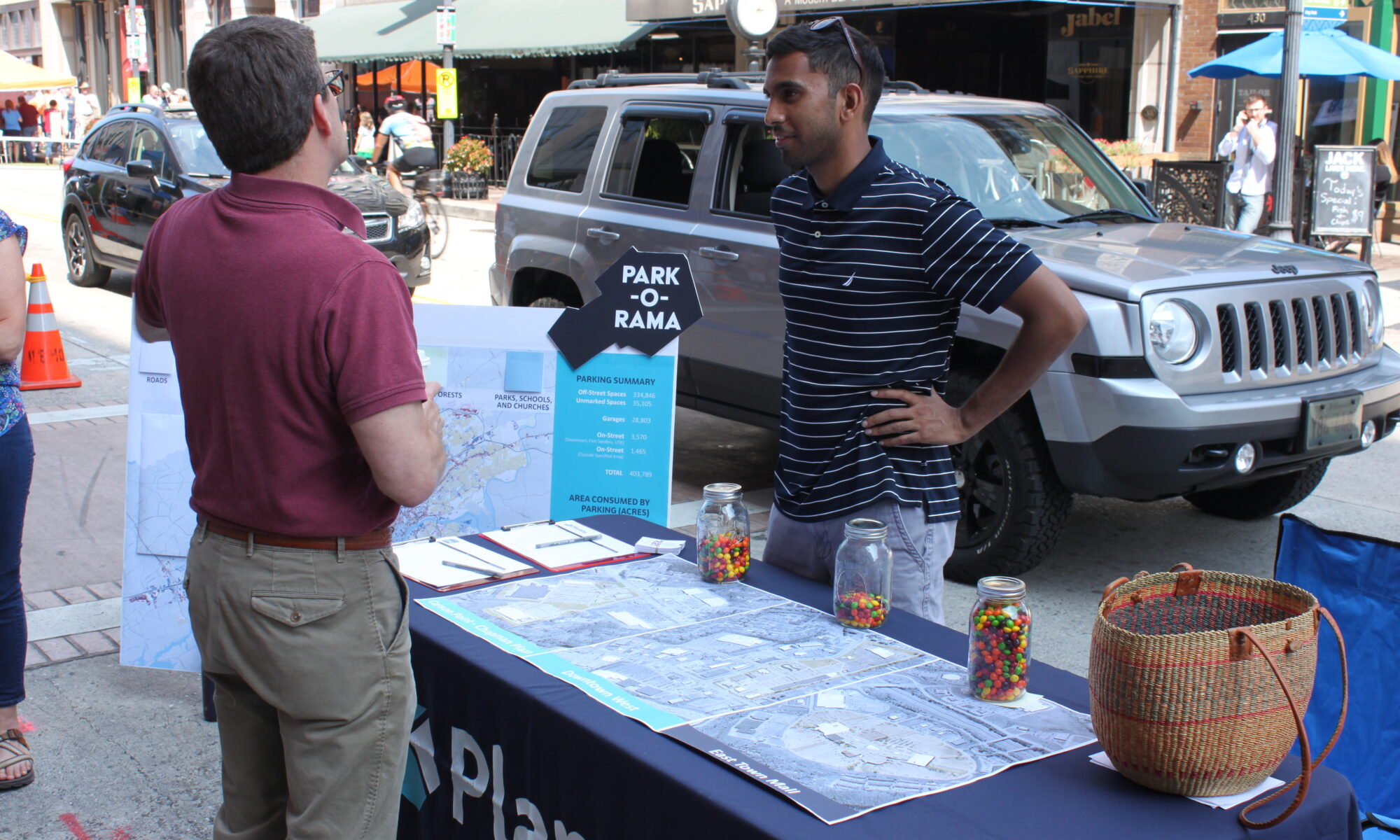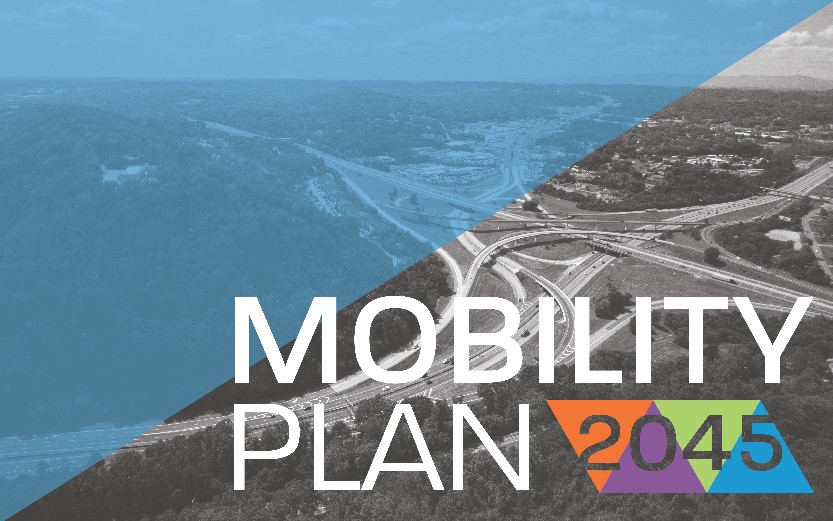The Outreach Plan fulfills federal requirements and serves as a working tool for TPO staff to refer to with each new plan and project. The last Outreach Plan update was adopted by the Executive Board in 2018. In this update, we have incorporated new outreach methods and noted the importance of flexibility and dedication to using new methods when possible.
The draft document is available for review and comment until October 10, 2021. If you have comments on the plan, please email Ally Ketron at ally.ketron@knoxplanning.org or 865-215-3234 or comment in person at an upcoming TPO Technical Committee or Executive Board Meeting. Details on those meetings can be found at https://knoxtpo.org/boards-and-committees/.
Input Needed for Statewide Active Transportation Plan
TDOT is developing a Statewide Active Transportation Plan this year that covers walking, bicycling, and traveling by personal mobility devices such as wheelchairs and scooters.
To participate in their Virtual Open House, visit their website to watch a brief video presentation, take a short survey online, and make comments on an interactive map between now and October 7th.
Survey: Transportation Needs for Seniors, People with Disabilities, & People of Low-Income.
The survey below takes less than 10 minutes, and your input would be appreciated. Please feel free to forward the survey to anyone you think would be interested in taking it. Take the Survey: English Spanish The Knoxville Regional Transportation Planning Organization (TPO) is updating our Human Services Transportation Coordination Plan (HSTCP). The HSTCP is required for the Knoxville urbanized area and focuses on human service transportation or transportation services provided by public transit providers, human service agencies, and nonprofits that serve seniors, people with disabilities, and people of low-income. The Knoxville urbanized area consists of all of Knox, and portions of Anderson, Blount, Loudon, and Sevier Counties – including the major cities within. The main effort of the HSTCP is to identify where gaps in services exist and identify strategies to help fill those gaps. The HSTCP is used to shape transportation policy and can impact how federal and state funds are distributed in the region. If you would like to stay involved with the HSTCP update or any future public input opportunities, please share your email at the end of the survey. This is a very important survey for the Knoxville region and we greatly appreciate your participation
Mobility Plan 2045 Underway
This region’s long-range transportation plan is updated every four years. The update allows us to receive federal money for transportation projects in our region and ensures that we’re making the best long-term decisions for our residents, employers, and visitors. The update, Mobility Plan 2045, will look 25 years ahead, determining what we need to do now in anticipation of what we will need then. Our vision for the future is determined by looking at our current conditions as well as expectations for growth and infrastructure needs in the future. We currently have about 877,000 residents who call our region home. Looking ahead 25 years, we expect to add approximately 183,000 new residents, placing our region’s population at just over 1 million by 2045. While Knox County will continue to have the largest population, gaining another 95,000 residents, we also expect every county in our region to continue growing in population and employment. Our population is diverse, with people living in small towns, big cities, and rural areas, and meeting the needs of so many different groups is challenging. The plan tries to determine the best ways to continue building prosperity and maintaining a high quality of life for all those in our region by looking at several areas of interest. By digging into these topics, we will attempt to uncover ways to make our transportation system safer and more efficient, improve the health of our residents and reduce air pollution, improve links among transportation modes, infrastructure and development, and address equal access to benefits and opportunities. Those topics include:
• Congestion,
• Safety,
• Technology,
• Mobility,
• Health,
• Land use and development,
• Environmental justice,
• Equity,
• Economic development,
• Tourism, and
• Freight and goods movement. A series of videos related to these topics is available at www.knoxmobility.org. Digging into these issues gives us a big picture look at our region, helping us prioritize transportation projects that accommodate all modes with a variety of different project types. Once these projects are identified in Mobility Plan 2045, they will start to move through the project development process. These projects can take 5, 10, or even 20 years to complete, which is why we need to start planning now. The first step in the process is to get feedback from you. That input not only guides our decision-making, but it ultimately impacts which transportation projects rise to the top of the list when it’s time to fund them. Ready to share your thoughts? Take the survey Explore the map
Designing for Traffic Safety (a PechaKucha recording)
Transportation planner Ellen Zavisca discusses how changes to the design of our streets and our vehicles can save lives and prevent unnecessary injuries. Mistakes happen, but they should not be deadly. If we take traffic violence seriously and work to reduce speeds, we can get to a place where no one suffers a life-changing injury, or worse, just trying to get from Point A to Point B.
TPO Receives Commendations from Federal Partners
The Knoxville Regional TPO successfully completed the Federal certification review of the metropolitan transportation planning and programming process. The TPO’s mission is to advise and assist our region to improve and expand transportation choices by involving citizens and decision-makers in our plans, forums, and outreach. Every four years, the Federal Highway Administration (FHWA) and Federal Transit Administration (FTA) review and evaluate our planning processes to ensure that we’re meeting the federal requirements and regulations in place to help us realize that mission. The review included input and participation from TDOT, Knoxville Area Transit, TPO staff, and the public. After a three day visit from federal partners to review the work and processes of the TPO, the review team determined that all requirements for certification had been met. Beyond meeting the specified requirements, the TPO earned six commendations for exceeding expectations in certain areas: – Metropolitan Transportation Plan – Interactive Map
– Air Quality & Transportation Conformity – Interagency Consultation Engagement
– Public Outreach & Civil Rights – Active Knox Speaker Series
– Transit Multimodal Planning – Transit Coordination
– Transportation Safety Planning – Bicycle and Pedestrian Crash Analysis Future recommendations include working with federal partners to expand the performance-based planning and programming process, using Title VI data to expand outreach efforts with disadvantaged populations, working closely with FHWA and TDOT during the next congestion management process update, and updating the Regional Intelligent Transportation Systems Architecture by summer of 2021. This certification is good for four years, meaning the next certification process will take place in 2024.

